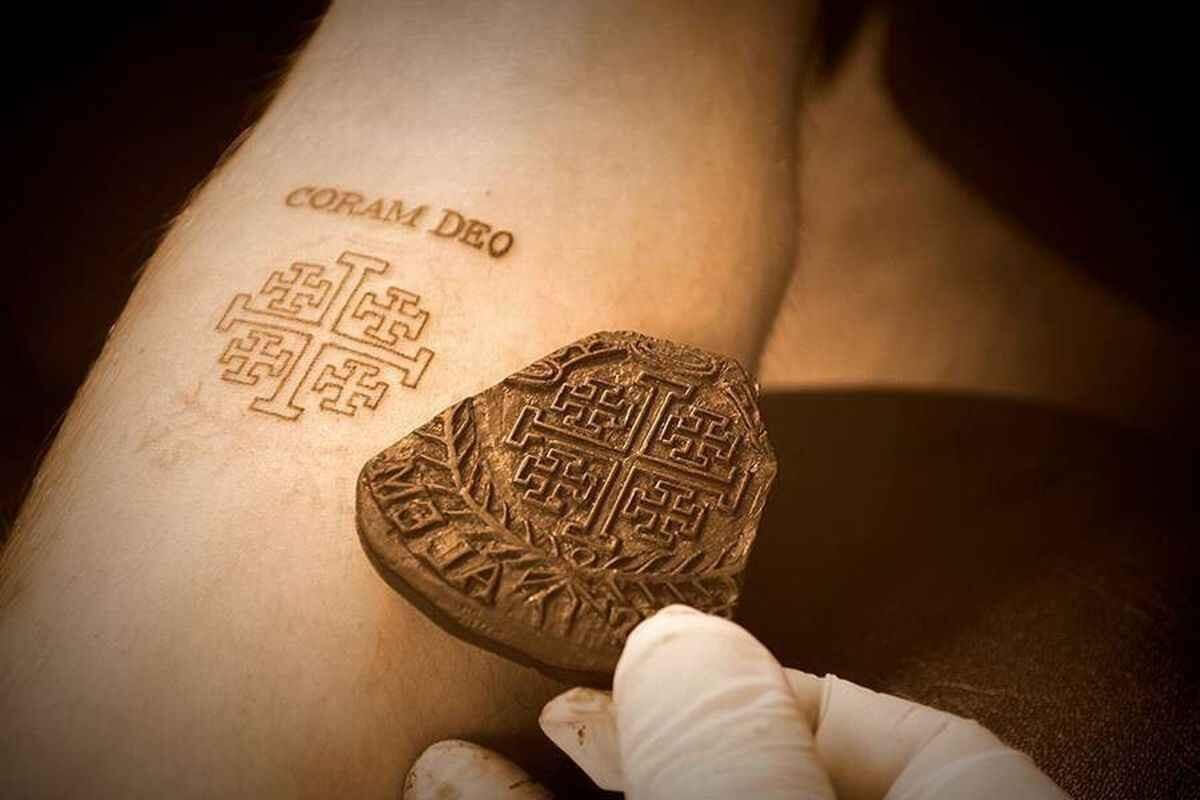Blog Search Results

Did you mean:
basil the great
?
116 results for Basil the Great
found
within the Blog
6 displayed out of 116 (0.88seconds)Page 1 of 20

Should Christians get tattoos, and is it Biblical?
Posted by Luke J. Wilson on 31st August 2019 in Tattoos | tattoos,church history,Basil the Great,Leviticus,Old Testament
...sted with Basil the Great of the fourth century, who supposedly (I say “supposedly” because I can’t find an original source for this quote, nor the quote above, though many other books and websites cite both; see end note) said: “No man shall let his hair grow long or tattoo himself as do the heathen” — it highlights that the views of this practice have been wide and varied over the centuries; as over in Egypt, the Coptic Church has been marking themselves with tattoos since the sixth or seventh century, even up to present times.
All of this debate stems from one seemingly clear verse in Leviticus:
Leviticus 19:28 (WEB)You shall not make any c...
the Historic Practice of Abortion and How Ancient Christians Responded
Posted by Luke J. Wilson on 1st July 2022 in Abortion | abortion,roe v wade,church history,current events,theology,politics,Why Are Christians Against Abortion?
.... — Basil the Great, Letter 188: 2,8; c. AD 374
Conclusion
As you can see by the quotes and dates of when they were written, the high view of the sanctity of life and its relation to being made in the image of God has been the cornerstone of Christian belief for the last 2000 years. Even longer if you take into account Judaism’s history, too.
So it should come as no surprise that even today, Christians generally oppose the practice of abortion and its legality, and have despised modern laws in favour of it, such as the recently overturned Roe v Wade in the United States. there’s a lot more that could be said about the uniquely American situation, an...
Spiritual Disciplines of the Early Church: Ancient Practices for the 21st Century
Posted by Luke J. Wilson on 17th June 2019 in Early Church |
...Psalm 1, Basil the Great (4th century)
Prayer and Fasting
Another common practice that was expected of believers was regular fasting, since Jesus had said “when you fast”, not “if”.
Typically, fasting was done every week on Wednesday and Friday, based on Matthew 6:16–18, and also to honour the days of the Passion and crucifixion in later tradition.
“But let not your fasts be with the hypocrites; … but fast on the fourth day (Wednesday) and the Preparation (Friday). … [But pray] as the Lord commanded in His Gospel (the Lord’s Prayer) … Thrice in the day thus pray.”
Didache (c. 50 – 70)
Alongside fasting, praying the Lord...
the Coming of Jesus: the Olivet Discourse – Part 2
Posted by Luke J. Wilson on 3rd February 2016 in Second Coming Series | Second Coming,Return of Christ,Return of Jesus,Preterism,Prophecy,Last Days,Left Behind,Eschatology,Matthew 24,Olivet Discourse,Josephus,history,Part 2,Desolation,Temple Destruction,Jewish War,70AD
...Welcome to Part Two of the Olivet Discourse! It’s been a while, so we’ll pick up right where we left off with Matthew 24 verse 15 onwards, after a small recap of the chapter so far.
the Olivet Discourse begins with the disciples admiring the architecture of the temple in Jerusalem. Jesus responds to this by telling them that it will all be thrown down and destroyed, to the point that not one stone will be left on another. Later on, when they are sat on the Mount of Olives, Jesus’ disciples come to him and ask “when will this happen?” and “what will be the sign” that all of this is about to commence?
If we look at the accou...
What is Monarchical Trinitarianism?
Posted by Luke J. Wilson on 21st July 2024 in Trinity | trinity,monarchy of the Father,Monarchical Trinitarianism,church fathers,church history
...Monarchical Trinitarianism, also referred to as the “Monarchy of the Father,” is a theological perspective that asserts the Father as the sole source (or monarch) within the Trinity. This view maintains a clear distinction of roles among the Father, the Son, and the Holy Spirit while upholding their unity in essence. It is essential to distinguish this from Monarchianism, a heretical belief condemned in the 4th century, which posited that God is a single person rather than three distinct persons.
the Eternal Begottenness of the Son
the term “created” used by the early pre-Nicene Fathers does not align with the Arian view, which posits that the Son was...the Mystery Of Epiphany And the Star Of Bethlehem
Posted by Luke J. Wilson on 6th January 2025 in Christmas | christmas,astronomy,astrology,epiphany
...As the Church celebrates Epiphany, we reflect on the Magi's visit to the Christ child, guided by a star—a sign of God’s revelation to the nations. This story, steeped in wonder and mystery, has sparked fascination for centuries. What was this “Star of Bethlehem” that led the wise men to Jesus? Was it a miraculous light, or could it have been a natural astronomical event designed by the Creator to herald the birth of the King of Kings?
the chart is from the SkySafari app
the Great Conjunction
In December 2020, the world witnessed a rare astronomical event called a “Great conjunction.” Jupiter and Saturn appeared so close in the night sky that t...

